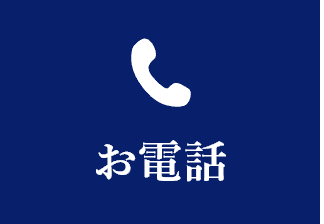Is it about time to replace your toothbrush?! Signs it’s time to change your toothbrush to protect your oral health

Hello! I’m Hiroshi Miyashita, director of Tokyo International Dental Clinic Roppongi. As a dentist I’ve been caring for people’s oral health for 30 years.
Do you use your toothbrush every day without thinking much about it? Actually, the timing of replacing your toothbrush is very important! This time I’d like to talk about the “right time to replace your toothbrush.”
Even if you think you brush properly every day, an old toothbrush can cut the effectiveness in half… Conversely, if you replace it at the right time, your mouth will stay cleaner and you can greatly reduce the risk of gum disease and cavities.
I’ll explain “when to replace your toothbrush” clearly, based on 30 years of experience.
“Exactly when should I replace my toothbrush?”
“What happens if I don’t replace it?”
I’ll answer those questions in an easy-to-understand way using my 30 years of experience!
If you read this article you will…
- Know the appropriate timing for replacing your toothbrush
- Understand what happens if you neglect replacement
- Learn simple oral-health habits you can start today
Is your toothbrush replacement schedule okay?
How often do you replace your toothbrush?
- Some people replace it “once a month.”
- Others think “maybe after about three months.”
- Some may even be using the same toothbrush “for more than half a year.” Of course, replacement frequency varies by person, but if you haven’t replaced yours in over a month, be careful!
Three points to time your toothbrush replacement
You might think “it still works,” but check the following points to judge whether it’s time to change.
◎ Replace at least once a month
This is the basic rule. A toothbrush used every day deteriorates faster than you might imagine. Replacing it about once a month helps keep your brushing clean and effective.
◎ Replace immediately if the bristles are splayed
Pay particular attention to the condition of the bristle tips.
If, when viewed from behind, the bristles protrude beyond the head, that’s a sign to replace it! A toothbrush with splayed bristles greatly reduces its ability to remove dirt from the tooth surfaces.
◎ Consider replacement when the bristles lose their stiffness
Even if the tips aren’t splayed, if the bristles feel limp and lack resilience, consider replacing the brush. A flexible, floppy brush can’t dislodge dirt between teeth or deep in periodontal pockets.
Why replace once a month? Three reasons
Reason 1: When bristles splay, cleaning ability drops sharply
Imagine a toothbrush with splayed bristles — it no longer fits properly to the tooth surface. Even if you brush, you won’t effectively remove plaque or food debris, which can lead to cavities and gum disease.
Reason 2: Loss of stiffness means dirt won’t come off
Bristle stiffness is important for scraping dirt from tooth surfaces and gaps. When stiffness is lost, the force to remove debris weakens and more plaque remains.
Reason 3: Bacterial growth makes the brush unhygienic
Used toothbrushes actually harbor many bacteria! Rinsing under running water can remove much of this, and it’s rare that toothbrush bacteria directly cause systemic illness, but from an oral-hygiene standpoint you don’t want to keep using a toothbrush where bacteria have multiplied.
Summary: Protect your oral health by replacing your toothbrush regularly!
Daily brushing is indispensable for oral health. To maximize the effect of brushing, it’s important to replace your toothbrush at least once a month.
Don’t think of it as “just a toothbrush” — start paying attention to replacement timing from today.
At our clinic we also offer personalized toothbrush recommendations and advice on proper brushing techniques. Please feel free to consult us.
Direct published evidence (research papers, etc.) specifically supporting changing a toothbrush monthly may indeed be hard to find. Many overseas studies investigate effects at intervals of once every three months. However, dentists recommend monthly replacement for several reasons:
- Bacterial growth: Toothbrushes are kept in moist environments, which makes them prone to bacterial growth. Studies show that used toothbrushes can carry various bacteria. Regular replacement helps reduce this accumulation.
- Bristle deterioration: Depending on usage frequency and brushing habits, bristle tips will splay or wear over time. Research shows that splayed bristles reduce plaque-removal ability.
- Hygiene: Because toothbrushes contact oral bacteria and food debris, keeping them sanitary is important. Regular replacement helps maintain cleanliness and improves the oral environment.
Recommending once-a-month replacement is therefore a conclusion drawn from these combined considerations — more experiential and hygienic advice than a strictly evidence-based mandate.
We will continue to support your oral health for everyone’s smiles!
Tokyo International Dental Clinic Roppongi — Director Hiroshi Miyashita
Schedule Your Consultation Today!
Tokyo International Dental Clinic Roppongi
- Address: 5-13-25-2 Floor, Roppongi, Minato-ku, Tokyo
- Phone: 03-5544-8544
- Closest Stations: Azabu Juban (Namboku Line / Oedo Line), Roppongi (Hibiya Line)
We look forward to helping you achieve a healthy, beautiful smile!















